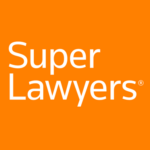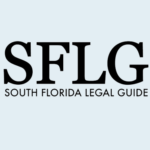Florida Bankruptcy Chapter 13
Chapter 13 Bankruptcy | Florida Debt Solution

What is Chapter 13 Bankruptcy?
The Chapter 13 Bankruptcy Process
Benefits of Chapter 13 Bankruptcy
Filing Chapter 13 Bankruptcy in Florida
Chapter 13 vs. Chapter 7 Bankruptcy
In Chapter 13 bankruptcy, individuals create a repayment plan that usually lasts three to five years, and plan payments are made to a court-appointed trustee, who then disburses the funds to creditors. This option is typically suitable for individuals and couples with substantial debt and allows them to retain their assets while repaying a portion of their debt.
On the other hand, Chapter 11 bankruptcy is primarily used by businesses and some high-income individuals who don’t qualify for Chapter 13. In this type of bankruptcy, the debtor creates a reorganization plan to repay creditors over an extended period while continuing to operate the business. Unlike Chapter 13, there is no trustee involved, and the debtor is responsible for making plan payments directly to creditors.
Chapter 13 vs. Chapter 11 Bankruptcy
Deciding between Chapter 13 and Chapter 7 bankruptcy can be challenging. Both options have distinct advantages and drawbacks, depending on your financial situation and goals. Understanding the key differences between Chapter 7 and Chapter 13 bankruptcy is essential to making an informed decision.
Chapter 7 bankruptcy, also known as liquidation bankruptcy, involves selling non-exempt assets to repay a portion of outstanding debts. On the other hand, Chapter 13 allows debtors to keep their assets while repaying debts through a structured repayment plan. For those wanting to retain their home or other valuable assets, Chapter 13 may be a better choice. Additionally, if your income exceeds the limit for Chapter 7, Chapter 13 could be your only viable option.
Customized Financial Strategies in South Florida
Why Choose LSS Law for Chapter 13 Bankruptcy in South Florida?
80+ Years of Combined Legal Experience
Call (954) 866-5356 to schedule a Strategy Session with our Chapter 13 attorneys in South Florida today.












FAQ: Chapter 13 Bankruptcy In Florida
In Chapter 13 bankruptcy, a debtor proposes a repayment plan to pay creditors over a 3-5 year period. The process involves filing a bankruptcy petition, submitting a repayment plan to the bankruptcy court for court approval, and making regular payments to a court-appointed trustee. The bankruptcy filing helps consolidate debts into a single monthly payment, allows retention of non-exempt assets, and addresses both secured and unsecured debts, providing debtors with a sense of control over their financial situation. Under the bankruptcy code, Chapter 13 is specifically designed to offer relief for individuals and couples facing financial difficulties while allowing them to regain control of their financial future.
Filing for Chapter 13 bankruptcy can provide various benefits, including:
- Halting foreclosure proceedings and allowing you to catch up on missed mortgage payments.
- Stopping repossession actions and giving you time to catch up on car loan payments.
- Providing a structured repayment plan to address both secured and unsecured debts.
- Allowing you to keep your assets while repaying your debts.
- Improving your financial stability and developing better money management habits through required counseling and education courses.
- Potentially modifying certain secured debt agreements, such as reducing the principal balance on certain loans through “cramdown.”
- Protecting co-signers on certain debts.
- Providing a sense of control over your financial situation.
Yes, filing a Chapter 13 bankruptcy can halt the foreclosure process when done at the right time. However, once you receive a foreclosure notice, you have 20 days to take action. Chapter 13 can help you catch up on missed mortgage payments and avoid losing your home.
Chapter 13 can delay foreclosure for the duration of the repayment plan, which typically lasts 3-5 years. By making regular payments under the plan, you can prevent foreclosure as long as you meet your obligations under the plan. Chapter 13 bankruptcy is a great choice for people who are struggling with debt but still want to keep their homes and other assets because it reorganizes debts and provides people with the breathing room to follow an actionable payment plan.
Chapter 13 can stop wage garnishment and bank account levies, but it requires quick action. Once you receive a judgment, you have 11 days to address the situation, or your wages or bank account could be garnished. By filing a Chapter 13 bankruptcy, you can halt the garnishment process and work towards repaying your debts through the repayment plan.
Yes, Chapter 13 can help stop repossession actions, providing you time and space to catch up on car payments and keep your vehicle. The bankruptcy filing puts an automatic stay in place, temporarily halting repossession efforts by creditors.
Initially, Chapter 13 will have a negative impact on your credit. However, as you reorganize your debt and make regular payments under the plan, your credit may improve over time. Demonstrating financial responsibility and commitment to repaying debts will be viewed more favorably by future creditors and lenders.
Chapter 13 bankruptcy may remain on your credit report for up to ten years. However, its impact on your credit score will generally decrease over time, especially as you make consistent payments and work towards improving your financial situation.
Chapter 13 can help address various types of debts, including certain tax debts, domestic support obligations, and debts not dischargeable in Chapter 7 bankruptcy. While priority debts must be paid in full, unsecured debts may be partially paid or discharged upon successful completion of the repayment plan, providing debtors with a fresh start and better money management habits.
In Chapter 13 bankruptcy, unsecured creditors are typically paid a portion of the outstanding debt through the debtor’s repayment plan. The amount paid to unsecured creditors depends on several factors, including the debtor’s disposable income, the total amount of unsecured debt, and the value of the debtor’s non-exempt assets. It’s important to note that unsecured creditors may not receive full repayment of the debts owed to them. Once the debtor successfully completes the repayment plan, any remaining eligible unsecured debts are discharged, and the debtor is no longer legally obligated to pay them.
Hindering secured creditors refers to the act of preventing or obstructing a secured creditor’s ability to enforce their rights over collateral or recover their losses in case of a debtor’s default. In the context of Chapter 13 bankruptcy, the repayment plan can hinder secured creditors by temporarily halting foreclosure or repossession actions due to the automatic stay that goes into effect when you file for bankruptcy. The repayment plan may also modify the terms of the secured debts, such as reducing the interest rate or extending the repayment period, which can impact the creditor’s ability to recover the full amount owed. However, the goal of Chapter 13 is to help debtors repay their debts in a manageable way, ultimately benefiting both the debtor and the creditor in the long run.
Extra Tips: Choosing The Right Bankruptcy Law Firm
Finding the right bankruptcy law firm is essential when navigating the complex bankruptcy process. A knowledgeable and experienced attorney will help you understand the intricacies of Chapter 13 bankruptcy, assess your financial situation, and guide you through the filing process. By choosing a law firm that specializes in bankruptcy, you can ensure you receive the best possible legal advice and representation tailored to your specific needs.
At LSS Law, our team of dedicated bankruptcy attorneys has a wealth of experience handling Chapter 13 bankruptcy cases. We provide personalized legal strategies, addressing both secured debts, such as car loans and mortgage payments, and unsecured debts, to help you achieve financial stability. Contact us today for a complimentary consultation to discuss your unique situation and find the most suitable bankruptcy relief option for you.
Credit Counseling Requirement
Before filing for Chapter 13 bankruptcy, debtors must complete a credit counseling course within 180 days prior to filing. This requirement ensures that individuals understand their financial situation, explore alternative debt management options, and make an informed decision about filing for bankruptcy. The credit counseling course can be completed through an approved agency, either in-person, online, or over the phone. Once completed, a certificate of completion will be issued, which must be submitted along with your bankruptcy petition.
It’s important to choose an agency approved by the U.S. Trustee Program for your credit counseling, as not all agencies meet the necessary requirements. Our experienced attorneys at LSS Law can guide you in finding an approved credit counseling provider and help you fulfill this crucial step in the Chapter 13 bankruptcy process.
Obtaining Court Approval
After completing credit counseling and filing your bankruptcy petition, the next step is to submit your proposed repayment plan to the court for approval. The plan should detail how you intend to pay your secured and unsecured creditors, taking into account your disposable income and the value of your non-exempt assets. It’s essential to work closely with your bankruptcy attorney to create a feasible and reasonable plan that meets the requirements set forth by the bankruptcy code.
Once your repayment plan is submitted, the bankruptcy court will schedule a confirmation hearing, during which the judge will review your proposed plan. Creditors may also attend this hearing and raise any objections or concerns they may have. Your attorney will represent your interests during the hearing, addressing any creditor objections and advocating for the court’s approval of your plan. Obtaining court approval for your Chapter 13 repayment plan is a crucial step in the bankruptcy process.
Fees And Expenses In Chapter 13 Bankruptcy
When filing for Chapter 13 bankruptcy, it’s important to be aware of the associated fees and expenses. There is a filing fee required by the bankruptcy court, which varies depending on your location. Additionally, you will need to pay attorney fees for legal representation and guidance throughout the process. The total cost of a Chapter 13 bankruptcy case will depend on the complexity of your financial situation and the length of your repayment plan.
It’s also important to keep in mind that your disposable income will play a significant role in determining your monthly payment under the Chapter 13 plan. Your disposable income is calculated by subtracting your necessary living expenses from your total monthly income. This amount will be used to create a feasible repayment plan that takes into account your financial obligations and ability to repay your debts.


